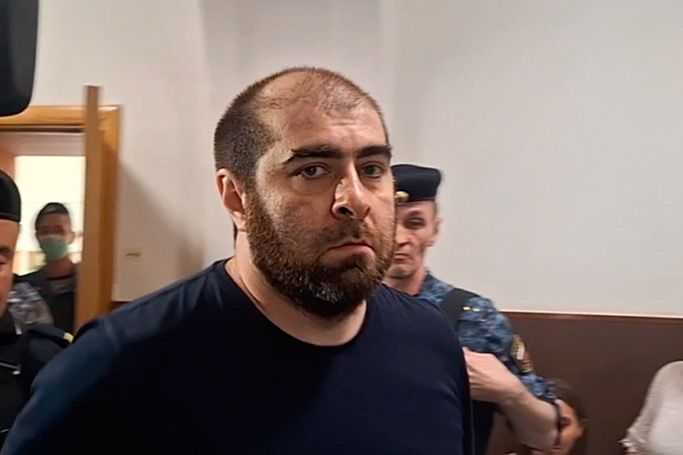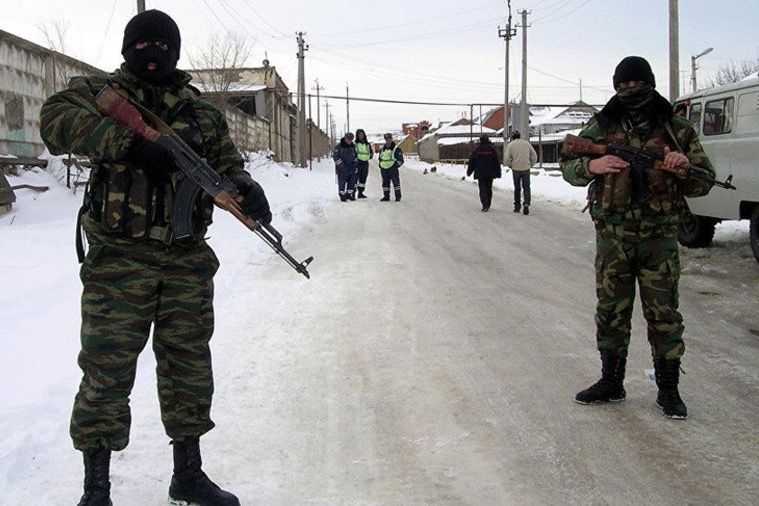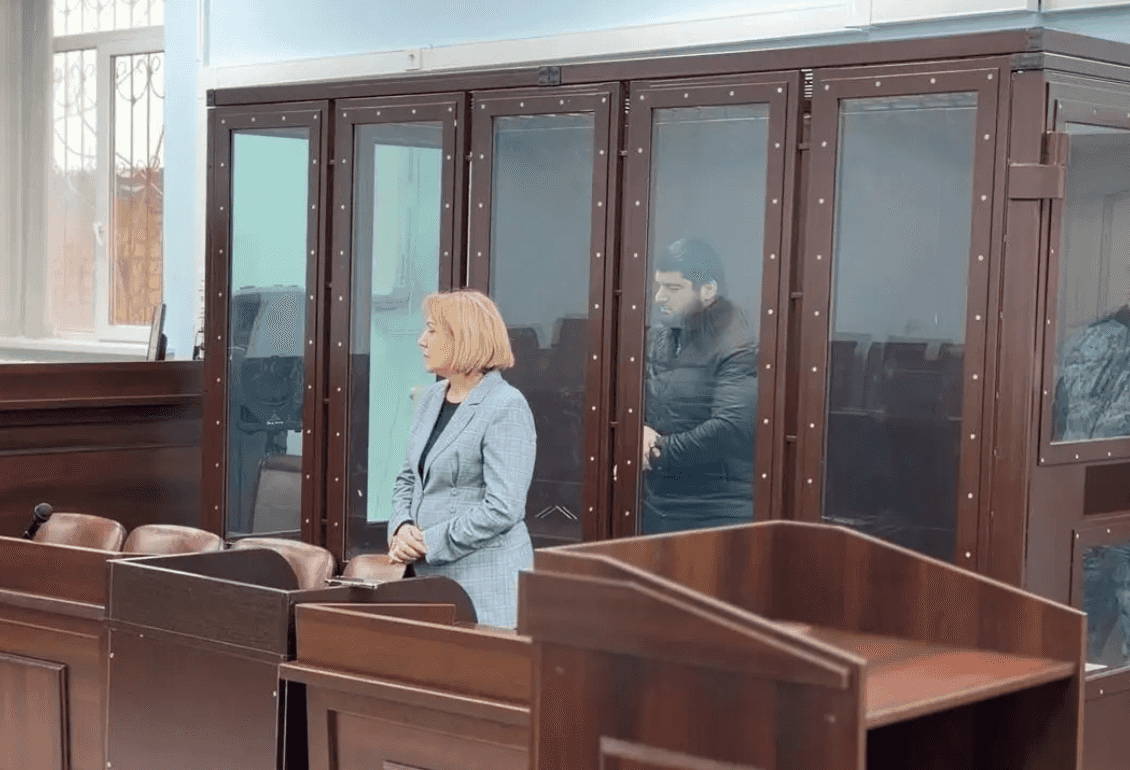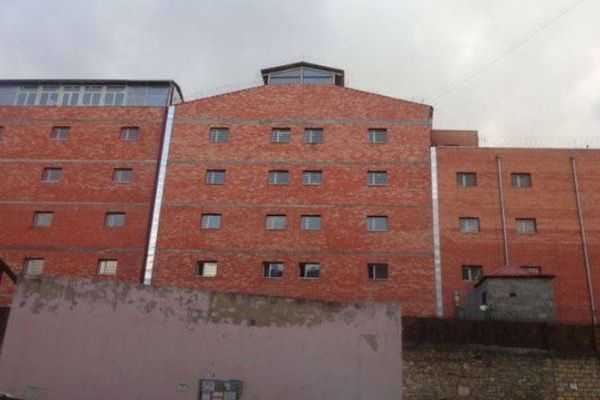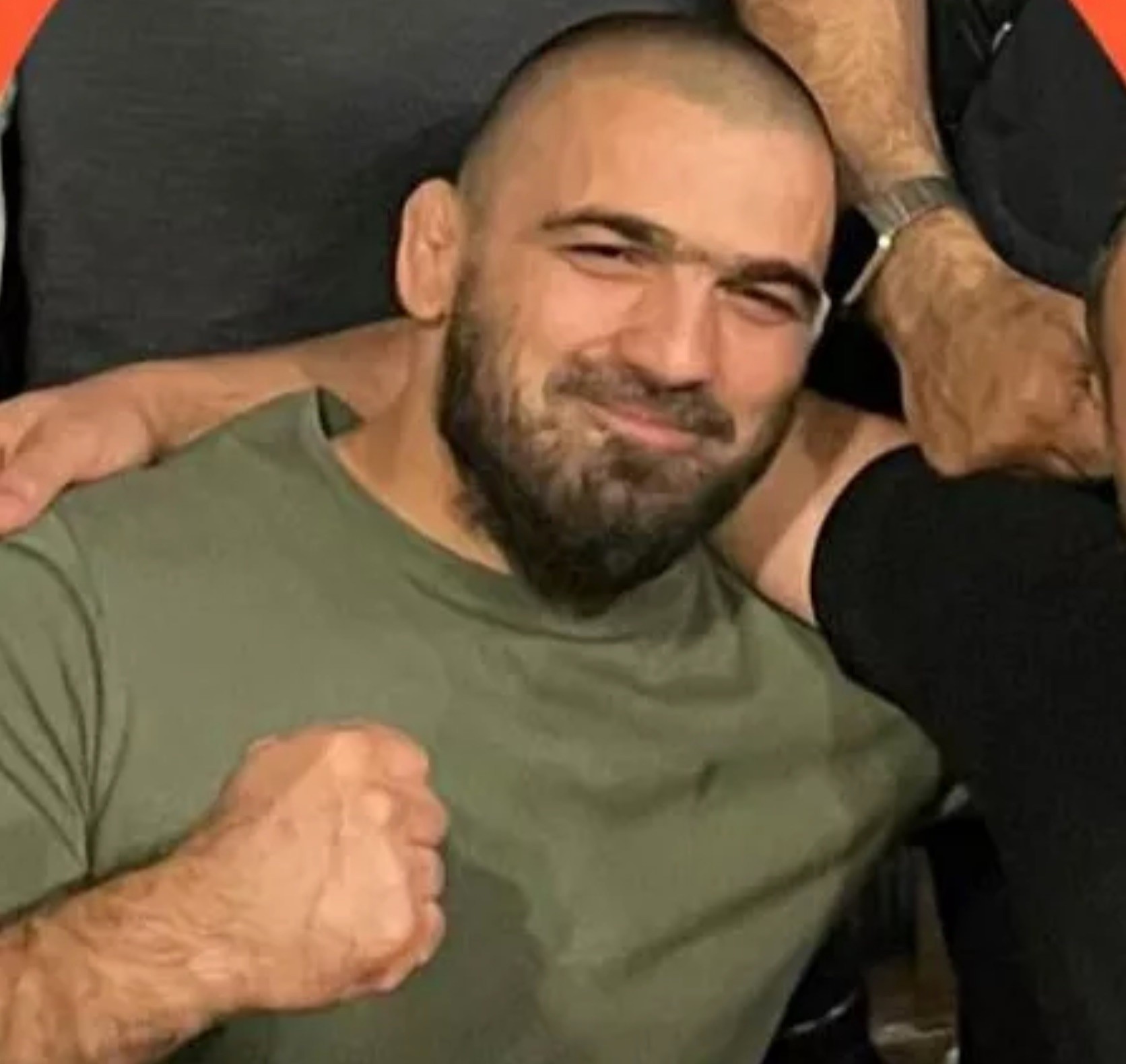
in Makhachkala on 9 December, former policeman Islam Atavov was found guilty in a case concerning the death of a detainee, but was convicted of abuse of authority, not of involuntary manslaughter.
Atavov was sentenced to 7.5 years in a strict regime colony, the deceased’s wife Amina Dalgatova told OC Media.
‘Of course, I do not agree with this ridiculous term. We have already filed a complaint to the Supreme Court. I will do everything for Atavov to cancel the pre-trial agreement and give the term that corresponds to the gravity of the crime committed,’ Dalgatova told OC Media.
Dalgatova said Atavov did not admit his guilt and said at the trial that he ‘just held my husband’s hands’.
‘Atavov repeatedly changed his testimony, so, of course, the relatives are not happy with the verdict, they are indignant. It is understandable. If he is the organiser and the murder was committed by a group of people who are on duty, then seven and a half years is certainly not enough,’ Shamil Khadulayev, a member of Daghestan’s Public Chamber, who followed the case from the start, told OC Media.
Amina’s deceased husband, 35-year-old Makhachkala resident Kurban Dalgatov, was detained in the evening of 20 January 2023 as a witness in a shooting case. According to the investigation, he helped a man who had shot an acquaintance escape from police. Dalgatov was taken to the Sovetsky District Department of Internal Affairs, where he spent about three hours in a detention facility. In the morning, his relatives found him in the Makhachkala Republican Clinical Hospital, where doctors pronounced him dead.
Dalgatov’s relatives claimed that he had been tortured, and said he had been strangled and electrocuted. They have photos taken in the morgue, where haematomas, allegedly caused by beatings, are visible. The forensic medical examination indicated asphyxia as the cause of death, Dalgatova told OC Media.
An official statement from the Daghestan Interior Ministry claimed the following: ‘During the proceedings, the citizen’s well-being deteriorated and he was given first aid. Police officers decided to take him to a medical centre. Despite measures taken by medics, the man [died]. It was later established that the deceased had suffered bodily injuries, which may have been the cause of the detainee’s death’. This message was removed shortly after from the ministry’s official Telegram channel.
Immediately after Dalgatov’s death, three law enforcement officers were arrested in connection with the case: Islam Atavov, Magomed Malikov, and Magomedkamil Kurbanov. Soon other suspects were added, eventually leading to a total of 13 people who became implicated in the case.
In February 2024, Sergey Kuznetsov, the deputy prosecutor of Daghestan, promised Kurban’s mother Raisat Dalgatova that ‘no one will get off with a suspended sentence’.
At the same time, the suspects themselves did not admit guilt – in court they insisted that Dalgatov ‘grabbed his heart, leaned against the wall and then fell, hitting his face on the floor’.
One of the suspects, Marat Babayev, made a deal with investigators. He was suspected of witnessing Dalgatov’s torture but not intervening in it. While waiting for his trial, Babayev said he wanted to join the full-scale war in Ukraine, and the court granted his request.
‘If we talk about Daghestan in general, the society there is not tolerant of deaths [at the hands of] police, and such cases cause a great resonance within society. And judging by the Dalgatov case, since a policeman has been convicted, we can say that justice has been served,’ the organisation Team Against Torture, which helps victims of violence by law enforcers, told OC Media.
Dalgatov’s case is not the first suspicious death in connection with the Sovetsky District Police Department. In December 2006, 22-year-old Nadyr Magomedov died while in detention there. His family was told that he died of heart failure while in a pre-trial detention cell, but an expert later found a piece of cellophane bag in his throat, indicating that foul play was possibly involved. The case sparked outrage in Makhachkala and a protest was held outside the police station demanding that those responsible for his death be punished, but the investigation went nowhere.
In 2021, two members of Rosgvardia, two brothers Salman and Suleiman Kurbanov, shot and killed 34-year-old Abakar Kaplanov, the former head of Novokuli village, in the building of the Sovetsky District Department of Internal Affairs. According to the Interior Ministry, the reason was a conflict over a disputed plot of land. The Kurbanov brothers were later convicted and sent to 1.4 and 1.5 years in prison, respectively.
In July 2024, Akhmed Dzhabrailov died in the same police department after being beaten and tortured with a stun gun. Despite the fact that the video from the cameras in the department was distributed via Telegram channels a few days after his death, those involved were arrested only two months later.
For the murder of detainees, most often law enforcers are prosecuted only for ‘abuse of power’. At the same time, the Russian Constitution expressly prohibits the use of torture. In about half of the cases that go to court, law enforcement officers received suspended sentences.



